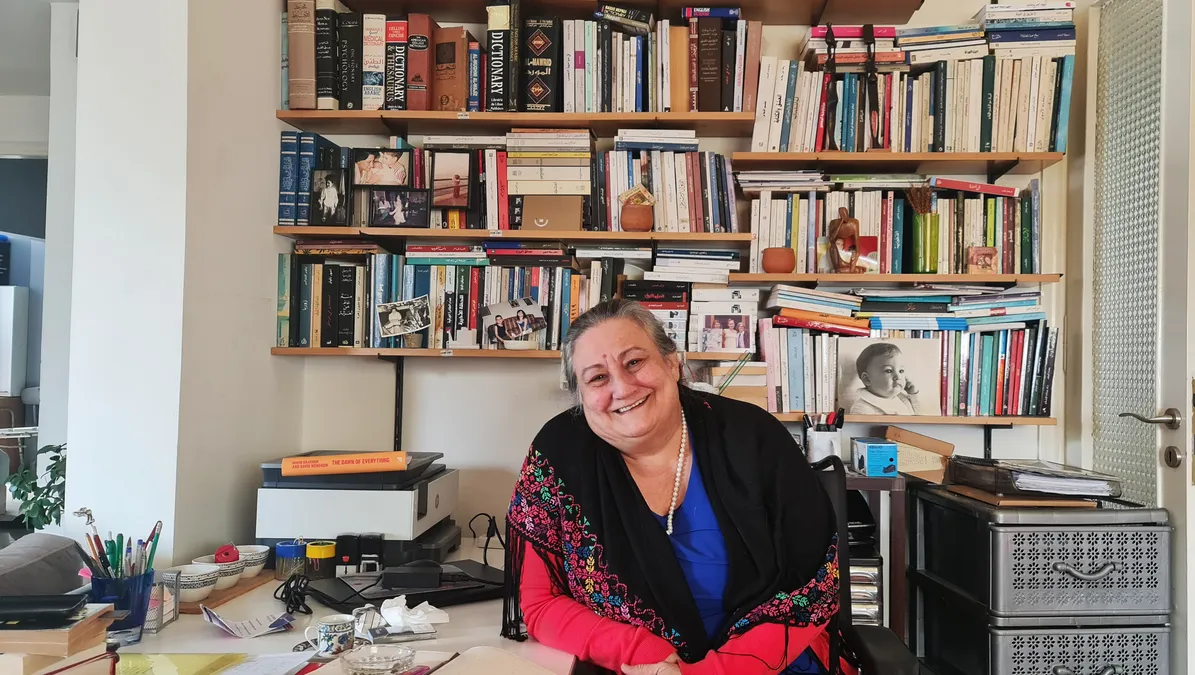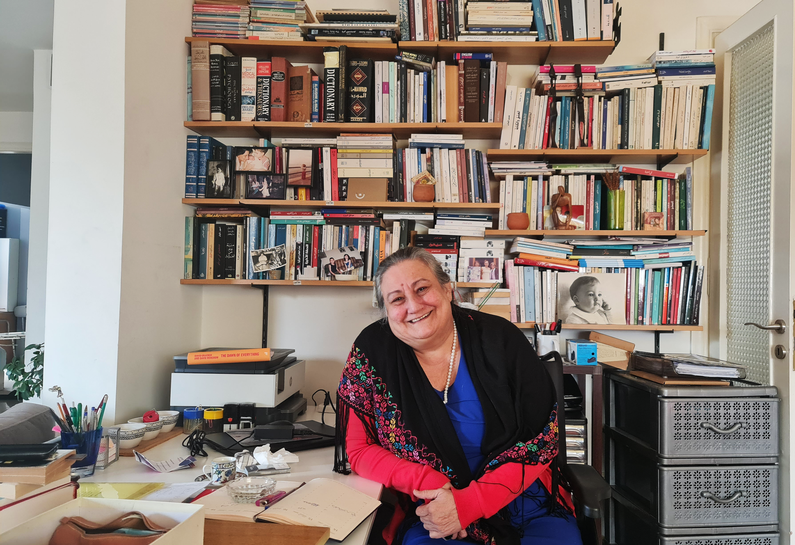“It’s not my job, it’s my mission”: Assisting Palestinian children with disabilities in Lebanon
18 March 2022


As a Palestinian woman with a disability, I was lucky to be born in a family that has the financial means to support me. I studied in schools and universities which were not accessible. I had to climb stairs to reach my classrooms, walk long distances and didn’t have access to suitable toilets. At one university, my father had to buy me a car to be able to travel between the different buildings, and at another he offered to install rails at his own expense to assist me going up and down stairs.
The most important thing for me when I started working was wanting to work for the Palestinian cause. I realised that supporting children with disabilities is the best way I can do this. The first opportunity I got that put me on this path was in the early 1980s in Lebanon’s Shatila Palestinian refugee camp, when I was training under the supervision of an occupational therapist and a special educator from Scandinavia. We formed small groups of children with cerebral palsy and started working with them twice a week.
At that time, the civil war in Lebanon intensified, and the team I was working with had to leave the country, but they supported the GKCF to open a preschool for children with disabilities in Mar Elias refugee camp. These were very difficult times and I had to take on multiple roles including management and technical roles.
The preschool provides early childhood education and habilitation support – including physical, occupational and speech therapy; psychological services; and special education – to children with complex disabilities and their families.
Lebanon is not equipped or suitable for people with disabilities, especially Palestinian women and children who live in conditions of extreme hardship and marginalisation, and face restrictions on accessing health and education. Two out of every three Palestinian refugees are living below the poverty line and the situation is worsening amid Lebanon’s economic crisis.
The preschool therefore fills a critical gap for child refugees and services that the UN agency for Palestinian refugees, UNRWA, does not offer. Establishing the centre and doing this work at the beginning was not easy. I was newly married and then had children. I used to leave work, collect my children from school and help them with their studies, and I used to wake up at 4am to do my physiotherapy exercises.
But I didn’t let my disability stop me from achieving anything I wanted to do. The centre was my refuge and the place that sustained my good mental health. This work has me made me stronger and helped me face many of life’s challenges. Many people ask me if I would have chosen this work if I was not a person with a disability, and the answer is “yes, for sure” – for me it is not a job, it is a mission.
I believe that children are my teachers, I learn from every child I work with. With every challenge there is a new pleasure. At the end of the year, I usually see the results of the work and the progress that children and their families have made. Sometimes I meet 40-year-old adults with disabilities, who were enrolled in the preschool as children, and they tell me how much our support meant to them.
GKCF also supports Palestinian women in Lebanon’s refugee camps by providing them with training and job opportunities. Women usually experience more discrimination than men, and by equipping them with more skills they are able to influence a whole generation of young people. All our preschool teachers are women from the refugee camps, but all the specialists and therapists are Lebanese, as Palestinian refugees are restricted from working in these jobs.
The stigma and taboo around disability is reducing. When the preschool first opened, the youngest child that attended was seven years old. Now, parents bring their children when they are only a few months old. This indicates better identification and acceptance of people with disabilities. More parents understand the importance of early intervention, so they are eager to get a diagnosis and start the programme as soon as possible. Doctors are also doing more to ensure children with disabilities have the most dignified life possible.
But the economic crisis in Lebanon is certainly making things worse for people with disabilities. Nowadays, I have almost no social life. Frequent electricity cuts mean I cannot use lifts, and roads and buildings are not accessible. I do not have a sense of security. I tried to have health insurance, but it costs more than my salary. I have to pay for all of my needs including surgery, medicines and assistive devices.
Nevertheless, during my whole life I have been optimistic. I hope there will be more respect and care for people with disabilities. When I retire, I hope the preschool continues to exist and serve many children, and that 35 years of hard work is not wasted.
Please consider donating to MAP to support Palestinian refugees in Lebanon.